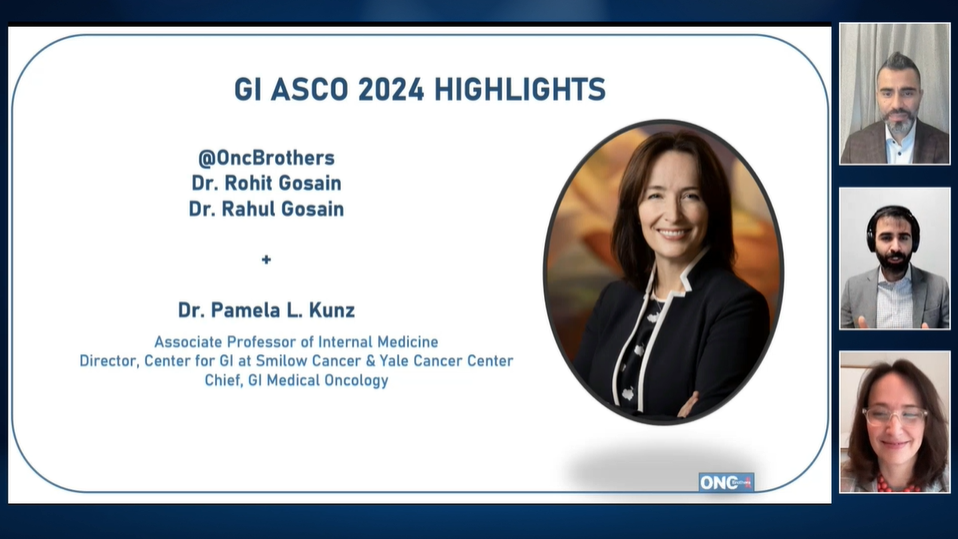Panitumumab Gains FDA Approval for KRAS Wild-Type mCRC
The FDA has approved panitumumab (Vectibix) in combination with chemotherapy as a frontline treatment for patients with <em>KRAS</em> wild-type metastatic colorectal cancer (mCRC), based on findings from two phase III clinical trials.
KRASwild-type metastatic colorectal cancer (mCRC), based on findings from two phase III clinical trials. In conjunction with panitumumab, the FDA has also approved a companion diagnostic for the detection of theKRASexon 2 mutation.
In the supporting PRIME and ASPECCT trials, patients withoutKRASexon 2 mutations had significantly better outcomes compared with those harboring the mutation. In the PRIME study, first-line panitumumab plus FOLFOX4 (oxaliplatin, fluorouracil, and leucovorin) improved progression-free survival (PFS) by 1.6 months and overall survival (OS) by 4.4 months compared with FOLFOX4 alone in untreated patients withKRASwild-type mCRC. In the ASPECCT trial, median OS with single-agent panitumumab was found to be noninferior to cetuximab (Erbitux) in previously treated patients withKRASwild-type mCRC.
The FDA initially approved panitumumab in 2006 as a treatment for patients with mCRC following progression on chemotherapy. The accelerated approval was based on an improvement in PFS compared with best supportive care. In addition to the new indication, the FDA has granted a full approval to panitumumab for the treatment of patients with mCRC.
“Vectibix is now the first approved biologic to show a significant survival benefit when combined with FOLFOX as a first-line treatment,” Lee S. Schwartzberg, MD, medical director of The West Clinic in Memphis, Tennessee, said in a press release. “Vectibix has shown a significant benefit to patients with wild-typeKRASmetastatic colorectal cancer when used with FOLFOX, which gives us a valuable new treatment option as we help patients fight this devastating disease.”
In the phase III PRIME study, 1183 patients were randomized 1:1 to receive panitumumab with FOLFOX4 (n = 593) or FOLFOX4 alone (n = 590). In total, 656 patients enrolled hadKRASwild-type mCRC, with 325 patients in the panitumumab arm and 331 in the FOLFOX4 alone arm. In the trial, panitumumab was administered at 6.0 mg/kg every 2 weeks.
In the wild-typeKRASpatients, the median PFS was 9.6 months with panitumumab plus FOLFOX4 versus 8.0 months with the chemotherapy alone (HR = .80;P= .02). The overall response rate (ORR) was 55% with panitumumab compared with 48% for chemotherapy alone.
An updated OS analysis conducted following greater than 80% of OS events was presented at the 2013 ASCO Annual Meeting. In this analysis, the median OS with panitumumab plus FOLFOX4 was 23.8 months versus 19.4 months with FOLFOX4 alone in patients with wild-typeKRASmCRC (HR = 0.83;P= .03).
The ASPECCT trial enrolled 999 patients with chemotherapy-refractory wild-typeKRASexon 2 mCRC. Patients were randomized 1:1 to receive panitumumab at 6 mg/kg once every 2 weeks (n = 499) or cetuximab at an initial dose of 400 mg/m2followed by 250 mg/m2once a week (n = 500). The primary endpoint was OS assessed for noninferiority.
According to results published inLancet Oncology,the median OS was 10.4 months with panitumumab versus 10.0 months with cetuximab (HR = 0.97;P= .0007). The median PFS was 4.1 months versus 4.4 months (HR = 1.00) and the ORR was 22% compared with 19.8%, for panitumumab and cetuximab, respectively.
All-grade adverse events were similar across treatment arms. Grade 3/4 skin toxicity occurred in 13% of patients treated with panitumumab compared to 10% with cetuximab. Other grade 3/4 adverse events with panitumumab and cetuximab, respectively, were infusion reactions (<0.5% vs 2%) and hypomagnesemia (7% vs 3%). Additionally, researchers noted a fatal lung infection in a single patient treated with cetuximab.
“Because every patient with cancer is unique, we have made it our mission to focus on identifying treatment options for patients based on their cancer’s genetic makeup,” Sean E. Harper, MD, the executive vice president of Research and Development at Amgen, the company develop panitumumab, said in a press release. “Approval of Vectibix in combination with FOLFOX for first-line treatment of patients with wild-type KRAS metastatic colorectal cancer is an example of the advancements that can be made through a greater understanding of distinct genetic markers associated with difficult-to-treat diseases.”
In September 2013 an analysis of the PRIME trial published inThe New England Journal of Medicinerevealed that other activating mutations inRASmight have predictive value for treatment with anti-EGFR therapy in mCRC. In this analysis, an expanded mutational criteria was utilized that includedKRASexon 2, 3, and 4 andNRASexon 2, 3, and 4. By these criteria, the median OS improved to 26.0 months with panitumumab compared with 20.2 months with FOLFOX4 alone (HR = 0.78;P= .04). Altogether, 108 patients (17%) were found to haveRASmutations outside ofKRAS








